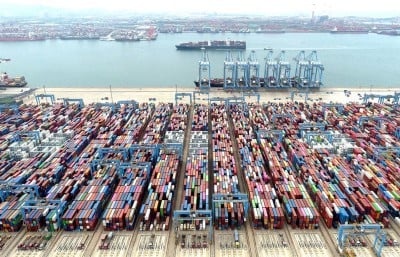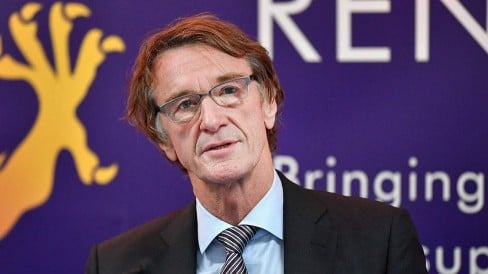 © Reuters. FILE PHOTO: Artificial Intelligence words are seen in this illustration taken March 31, 2023. REUTERS/Dado Ruvic/Illustration/File Photo
© Reuters. FILE PHOTO: Artificial Intelligence words are seen in this illustration taken March 31, 2023. REUTERS/Dado Ruvic/Illustration/File Photo By Foo Yun Chee, Martin Coulter and Supantha Mukherjee
BRUSSELS/LONDON (Reuters) -EU lawmakers returned to the negotiating table for a third day on Friday to try to resolve major differences over laws regulating artificial intelligence, the first of its kind as the world grapples with the implications of the fast-growing technology.
During a marathon almost 24-hour debate, weary lawmakers and governments agreed provisional terms for regulating AI systems like ChatGPT early on Thursday, taking a step closer to clinching rules governing the technology.
"Batteries: recharged. Ready to dive back into the #AIAct trilogue," EU industry chief Thierry Breton said on X on Friday.
"We made major progress yesterday and the day before — let’s join forces for the last mile," he said.
But a critical sticking point was over the use of AI in biometric surveillance, two people with direct knowledge of the matter said.
EU lawmakers want to ban the use of AI in this area, but governments have pushed for an exception for national security, defence and military purposes.
Getting consensus on this will determine the outcome of talks on Friday, one of the people said. The person declined to be named as the terms are confidential.
The prolonged talks and division in the 27-member bloc in the talks illustrate the challenge facing governments around the world as they weigh the advantages of the technology, which can engage in human-like conversations, answer questions and write computer code, against the need to set guardrails to control its influence.
Adding to the complexity, lawmakers are racing to write regulations even as companies like Microsoft-based OpenAI continue to discover new uses for their technology.
OpenAI's founder Sam Altman and computer scientists have also raised the alarm about the danger of creating powerful, high intelligent machines which could threaten humanity.
Much is riding on the new law, which could become the blueprint for other governments as countries seek to craft rules for their own AI industry, providing an alternative to the U.S.' light-touch approach and China's interim rules.
EU countries and lawmakers are scrambling to get a final deal ready for a vote in spring, ahead of Parliamentary elections in June when the legislative process will grind to a halt.
Related pages
Dollar steady as traders await US inflation data, bitcoin volatile
© Reuters. U.S. Dollar banknote is seen in this illustration taken July 17, 2022. REUTERS/Dado Ruvic

US Consumer group seeks stronger warnings on Botox, similar treatments
© Reuters. FILE PHOTO: A vial of Botox, owned by AbbVie, is seen next to its packaging in a photo il

China's exports grow for first time in 6 months in relief for factories
© Reuters. FILE PHOTO: An aerial view shows containers and cargo vessels at the Qingdao port in Shan

Jim Ratcliffe: Who is the man who wants to buy Man Utd?
Image source, Getty ImagesBy Dearbail Jordan & Noor NanjiBusiness reporters, BBC NewsOne of the

As Japan emerges from deflation, banks get wake-up call on interest rate swing
2/2© Reuters. FILE PHOTO: A man walks past signboards of Sumitomo Mitsui Banking Corporation (R),

Stellantis, CATL plan factory in Europe to make cheaper EV batteries
2/2© Reuters. FILE PHOTO: The Stellantis logo is seen during the New York International Auto Show,

